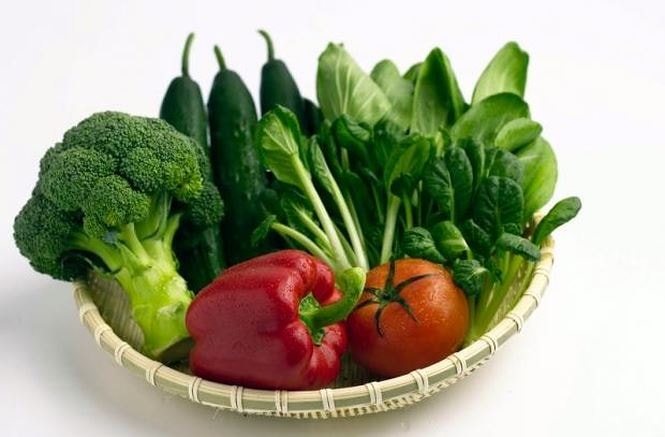This is the best way to prevent colon cancer
Colon cancer is the fourth leading cause of cancer death in the world after lung cancer, stomach cancer and liver cancer. Regular colon screening and a healthy diet are the best ways to prevent cancer.
 |
According to age and gender statistics, the incidence and mortality of colon cancer in men is higher than in women, the age distribution has a rapid increase in incidence in the 40-45 age group when the disease is detected, and is more prevalent in the 75-80 age group.
Therefore, experts suggest that it is best for people over 40 to have an endoscopy at least once. If no abnormalities are detected, it may be advisable to have another check-up about 5 years later.
The mortality rate of colorectal cancer is high, mainly due to too many inaccurate diagnoses or missed diagnostic opportunities, leading to colorectal cancer being detected at a late stage.
There are many different risk factors for colorectal cancer and the causes are complex. It is not easy to prevent the causes of the disease.
 |
In the form of fried, grilled, bacon, ham, sausage, protein will increase the carcinogenic factor, and fat will be metabolized by bacteria in the intestine, causing the proliferation of abnormal epithelial cells and developing into cancer. Illustration: Internet |
Regular colon and rectal examinations are one of the best ways to prevent colon cancer. Precancerous polyps often have no symptoms and can be found during a colonoscopy several years before invasive cancer develops.
Screening can also find precancerous polyps and remove them before they become cancerous. This is considered the most specific way to prevent the disease. Colon cancer can be prevented through healthy eating habits.
There are many risk factors that people can avoid such as: Red meat (beef, lamb) is considered to be closely related to colon cancer. Eating about 160g/day or a diet with meat more than 5 times/week has a 3 times higher risk.
In the form of fried, grilled, smoked meat, ham, sausage, protein will increase carcinogenic factors, and fat will be metabolized by bacteria in the intestine, causing hyperplasia of abnormal epithelial cells and developing into cancer.
Eating a lot of meat, fat, protein, and little fiber can easily lead to obesity and a high risk of colon cancer, so it is necessary to change to a more scientific diet to prevent disease.
Foods high in fiber (green vegetables, fruits) help reduce this risk because fiber increases folic acid consumption, increases the combination of fiber with carcinogenic factors, leading to early elimination from the intestine because of reduced stool retention time.
 |
Foods rich in fiber (green vegetables, fruits) help reduce the risk of colon cancer. Illustration: Internet |
Alcoholic beverages increase the risk of colon cancer.
Tobacco is known as the “killer” of cardiovascular disease or lung cancer. Recently it has been recognized as a very important risk factor for colon cancer in both sexes, especially when combined with alcohol. Physical activity, exercise or exercise will reduce the risk of colon cancer.
Types of nuts that are extremely good against colon cancer:
Research from the University of Jena, Germany shows that eating nuts such as hazelnuts, walnuts, almonds and pistachios not only contributes to a healthy diet but also slows the growth of cancer cells and reduces the risk of colon cancer.
In this study, the research team investigated the effects of five nuts: macadamia nuts, hazelnuts, walnuts, almonds, and pistachios.
Seeds were artificially digested in vitro and the effects of the digestion products on cell lines were then analyzed.
The researchers demonstrated that the activities of the protective enzymes catalase and superoxide dismutase increased in the treated cells. In addition, the digestive products induced programmed cell death in the cancer cells.
